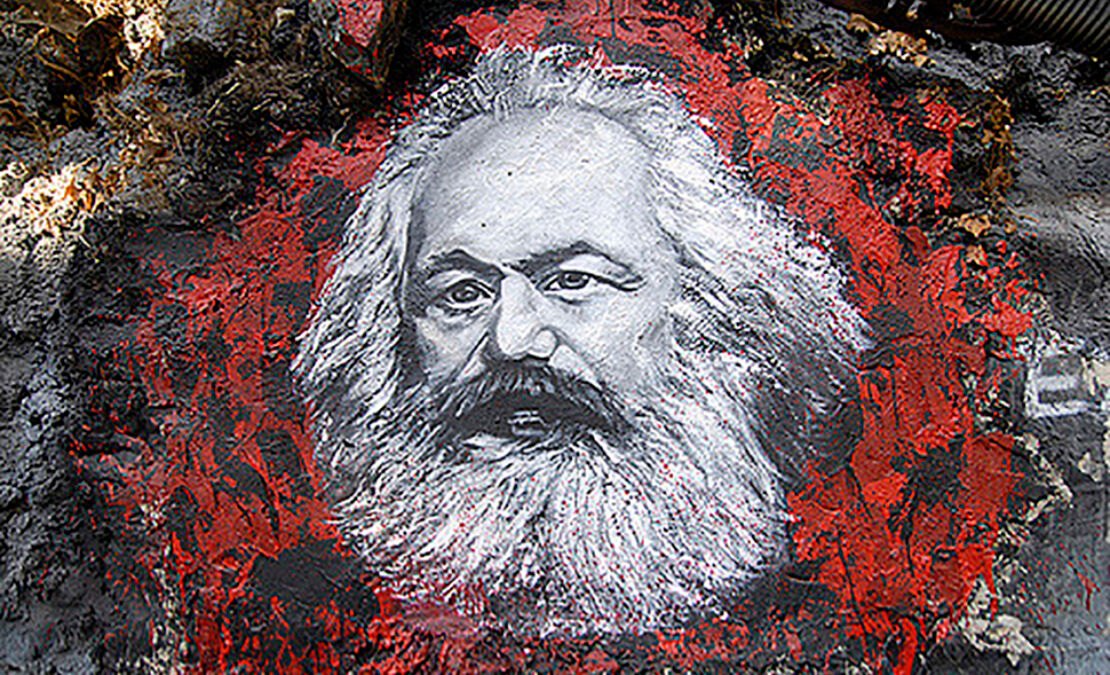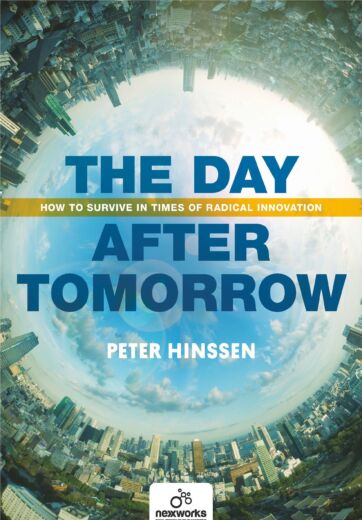I was introduced to Karl Marx’ brilliant, visionary and undervalued publication The Fragment on Machines by writer, broadcaster and film-maker Paul Mason. In that little gem of a book, Marx describes an economy in which the main role of machines is to produce, and the main role of people is to supervise them. Marx was very unambiguous about how, in such an economy, the main productive force would be information. Organization and knowledge, in other words, made a bigger contribution to productive power than the work of making and running the machines.

Marx, ever the socialist, wrote that in an economy where machines do most of the work, the nature of the knowledge locked inside the machines must be ‘social’. He even imagined the creation of an ‘ideal machine’, an end point of his revolutionary ideas where information would be stored and shared in something called a ‘general intellect’, which is the mind of everybody on Earth connected by social knowledge. That’s actually what the likes of Facebook and Google have achieved today. It’s mind-boggling how Marx was able to imagine something extremely close to the information economy in which we live today. He wrote in conclusion, its very existence would “blow capitalism sky high”.
Paul Mason, too, believes that the end of capitalism as we know it, has begun. As he put it: “Without us noticing, we are entering the postcapitalist era. At the heart of further change to come is information technology (IT), new ways of working and the sharing economy. The old ways will take a long while to disappear, but it’s time to be utopian.” Mason believes that postcapitalism “will replace the current form of capitalism that is quickly becoming corroded by information. Most laws concerning information today define the right of corporations to hoard it and the right of states to access it, irrespective of the human rights of citizens.” Mason thinks this is a fundamental element to reset if we want achieve the utopia of the information society. He claims: "The equivalent of the printing press and the scientific method is IT and its spillover into all other technologies, from genetics to healthcare to agriculture to everything we know in society."
He is not alone. Today we see a rising group of economists who claim that we have to completely re-boot the field of economics. They too claim that our current models are no longer in tune with the new information network intelligence-based reality. Chief Economist and Senior Vice-President of the World Bank Paul Romer might very well be the intellectual leader of a growing group of scholars calling for a complete overhaul of the study of economics: "For more than three decades, macroeconomics has gone backwards." “Macroeconomics,” he argues,” is like a science that has not only stalled for three decades, but has actually gone backwards in its ability to be in touch with and understand reality.”
Romer says that if we want to make sense of the economies for the ‘Day After Tomorrow’, we have to understand how IT and network effects are fundamentally changing our world: how they are moving the focus of economics away from land, labor and capital towards “people, ideas and things”.
He claims that elitist economic circles have lost touch with reality. Macroeconomist equations assume that only unpredictable shocks from the outside can disturb economic equilibriums. He claims our economic thinking has become over-reliant on these kinds of super-abstract mathematical models. In The Trouble With Macroeconomics, Romer mocks these imaginary disruptions. He compares the results to a kind of physics that only works if there are “trolls, gremlins and ether”.
Instead of reducing reality to a few variables in some abstract mathematical model, he proposes the concept of the 'agent-based model'. The model tries to replicate reality – and its randomness – in detail, by using the network and the power of information, to 'simulate' the evolution of markets, consumers and players. Only that way can we understand real behavior of real consumers, real citizens and entrepreneurs. Only that way can we grasp the true economic consequences of different scenarios. Paul Mason compared Romer’s vision to a global professional version of the open-ended city-building computer game series SimCity, which would use the age of networks as input for a 'general intellect' so that we can turn economics into a simulation game.
Google would be a really good substrate for that kind of global statistical and economic simulator. Facebook would as well. How long will it take before these kinds of global network giants know much better than governments what the economic propensity of a region is?
Google already knows a lot more than the city of Los Angeles about what goes on in the streets of LA, with the input from Google Maps and Waze. Facebook knows much more about what people think about news articles on CNN than CNN.com itself. Amazon knows much more about what people are willing to buy – and at which price – than any 'bureau of statistics' or 'economic ministry' in the world could ever comprehend.
Paul Romer believes we have to re-start the science of economics. Or that we need to at least upgrade it to the era of IT and global networks. Paul Mason, for his part, is a true techno-optimist and utopian believer in a wonderful ‘Day After Tomorrow’ of 'Post Capitalism'.
My biggest fear is that in all of these discussions, our political systems have become the slowest moving part in society. Worse, we 'regulate' many industries with insights, models and mechanisms of the past, instead of looking to the future.
This article is an adapted excerpt from my new book The Day After Tomorrow.
